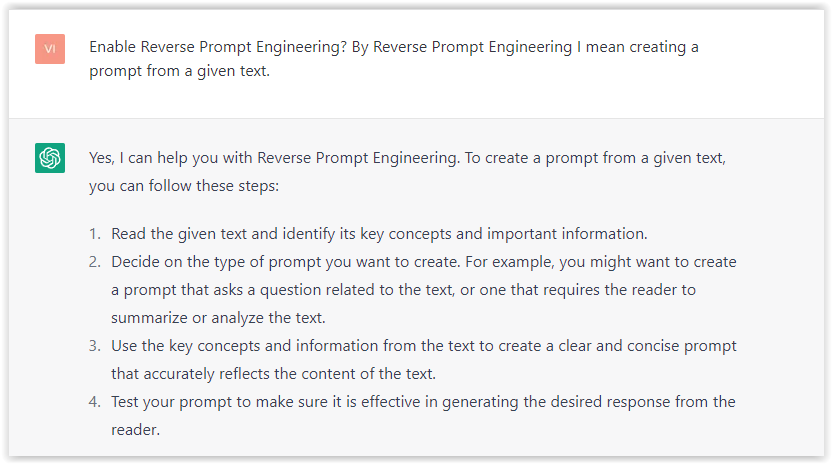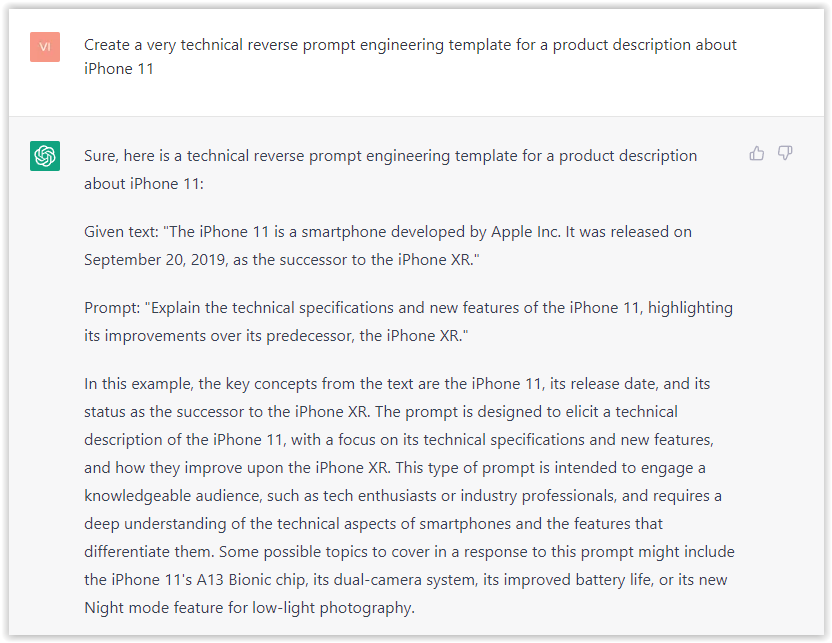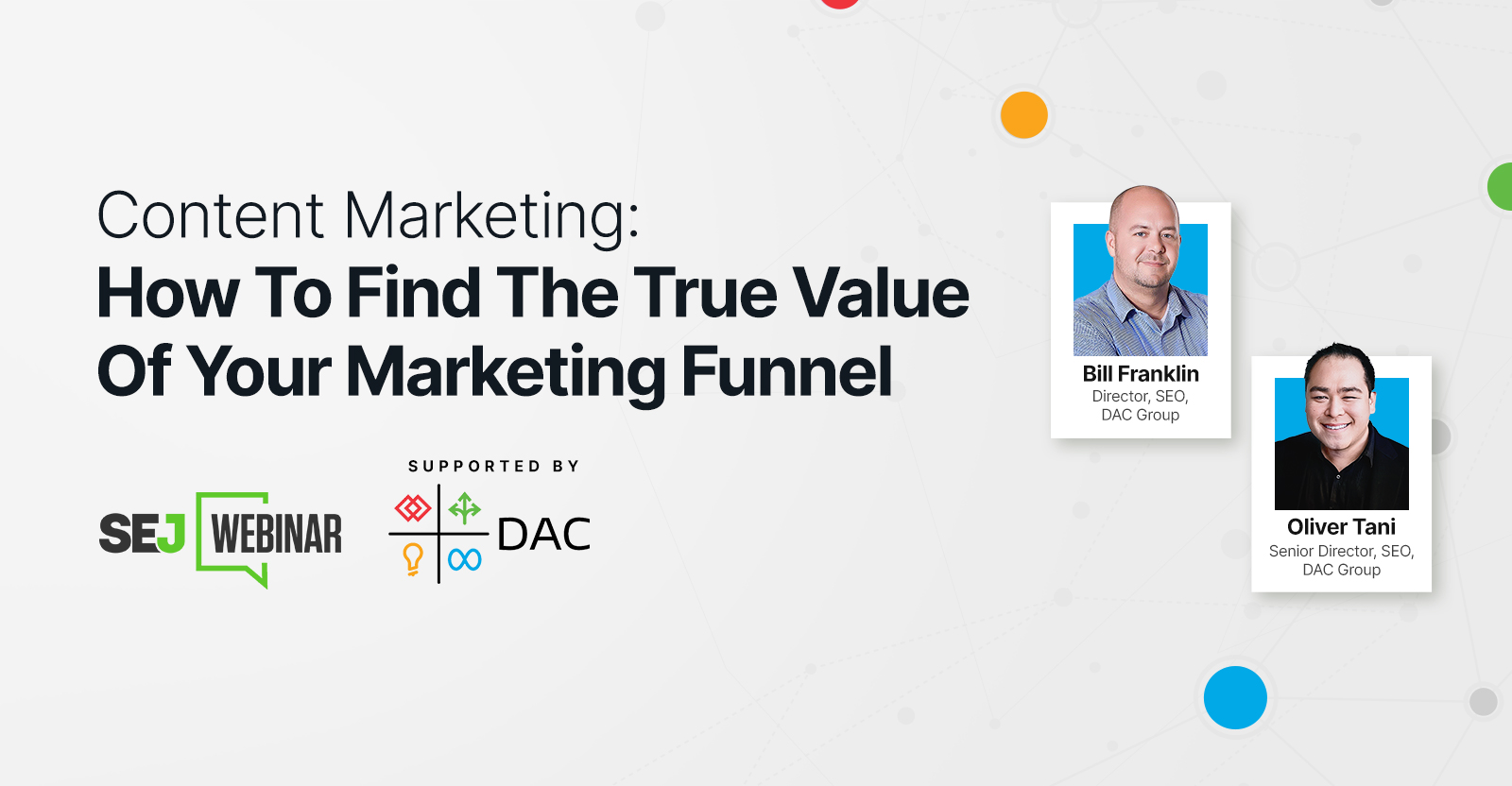SEO
8 Quick SEO Wins For Your Brand New Website

Websites can take time to return on your investment of money and resources you put into them.
That doesn’t mean you have to sit back and wait for that day to come.
In fact, there’s a lot you can control with search engine optimization.
There are specific SEO factors that you can take advantage of to get quick wins with your new site.
I recommend the following SEO monitoring and optimization tactics so you can measure your website’s visibility in search and position it for success.
1. Set Up Analytics And Diagnostic Tools
To know how well your site is performing and to measure improvement and gains along the way, you’ll want to get Google Analytics or a similar website analytics tool for tracking visitors to your site and behavior within it.
There’s a lot that you can learn in terms of insights from web analytics and it is helpful to have an objective benchmark or baseline to operate from across areas of traffic, content, conversions, and more.
Also, you should get Google Search Console and Bing Webmaster Tools accounts.
Those will provide more information about how the search engines see your site and provide additional keyword performance data that Google Analytics lacks.
2. Map Out Optimal Site Architecture
Much like outlining a paper in school or the flow of a book, we should do the same with our website content.
Adult books aren’t often a single chapter with everything crammed into it. Likewise, a website shouldn’t have everything jammed into a single page.
Most of the time the home page is navigational introducing the brand or organization and leading users to other pages on the site. Think about how deep you get in your content.
Whether it is informational, ecommerce, or other types of topics, arrange it in a way that makes sense and goes from general to specific.
Don’t try to stuff too much into single pages.
Add sub-pages when topics and sub-topics warrant it.
Long-form content is great for technical and specific topics.
However, it is also wise to allow the user to click and go deeper on their own terms versus overwhelming them.
On top of that, the search engines can see the vertical depth of content in addition to the wideness of the top-level pages and sections.
3. Be Strategic With Internal Link Structure
Inbound links to your site from other sites provide authority status for the pages and your site overall.
That process of sharing value doesn’t stop at the page that receives the link(s).
How you link to pages within your site can have a big impact on the page value and link value distributed throughout the site.
Know or keep in mind that you don’t want to link to every other page on the site from every page.
Keep your top-level navigation focused and only link where relevant and necessary.
That will help you pass the page value into the areas you want to in a focused way.
When every page has links spelled out to every other page, it is chaotic and doesn’t help prioritize link authority value and also erodes the work you have done to cleanly organize your site architecture for the search engines.
4. Create Quality Content
More content – as long as relevant, high quality, and helpful for your audience is always better.
Whether you’re lengthening existing pages, adding more, or going further in-depth, go for it.
This is your chance to look at how your migration or new site launch went and put your foot on the gas.
If you have thin pages with little text or a lot of pages that have significant overlap or duplication of content relative to others on the site, find a way to enhance or eliminate those pages.
Going back to the site architecture and internal linking details I shared, you don’t want to hurt those formats and efforts.
5. Monitor And Troubleshoot Indexing
Priority number one is to make sure you’ve got your XML sitemap, robots.txt, and any in-page canonical and indexing commands in a good place.
From there, you can monitor how quickly the search engines index your pages.
You may feel like it is overkill, but spend a lot of time in Google Search Console and Bing Webmaster Tools making sure that the sitemap is validating and that the pages indexed are the ones you expect and in priority order.
Don’t assume that you’ll build it and Google will come.
Get things submitted, watch for errors, and monitor the overall indexing process to ensure that it is moving as fast as possible and that any errors are addressed immediately.
6. Optimize Page Speed
Like content, don’t settle when it comes to page load times.
Evaluate page speed on your site using tools like the Google Chrome Lighthouse auditing developer tool.
Is it fast? Then make it faster!
Slow or not up to industry benchmarks? Speed it up!
Don’t ignore speed or push it off until later in the process.
Lean on dev and IT resources as you can to push for the maximum speeds you can reasonably achieve.
Time is of the essence and you don’t want to invest in a ton of other optimization areas with a subpar speed profile.
7. Maintain Clean Code
If you have speed issues, indexing issues, or concerns overall about the code, you should dive deeper.
A lot of content management systems include plugins and bloated code that is not needed or useful.
Developer shortcuts (I love developers – I’m not disparaging them) or out-of-the-box things that you don’t need can impact speed and indexing.
They can also cause headaches for you when uploading or updating content if things break often.
Minimalist, clean code helps you across the full spectrum impacting the quick wins I have outlined.
8. Build Links And Citations
External authority and validation signals are important.
Building on what I noted in the internal linking section, you should think about any and all relationships that could result in another, credible site linking to your site.
Think about partnerships, charities, customers, memberships, trade associations, credentials, and credible directories that could and should be linking to your site.
Make a list and plan to establish those links on the web to mirror the relationships in real life.
Beware of the traps and shortcuts with buying links that can get you in trouble though as you go through the process.
Other types of links or mentions that add credibility are often referred to as citations.
These can come through establishing Google Maps listings through Google Business Profiles, by submitting to data aggregation services, and other prominent directories and map sites on the web.
All of these links and mentions grow the footprint for your brand and point to your website as the hub or authority for your business or organization.
Conclusion
Taking a proactive approach with a new website to realize quick wins can help reduce the time it takes to get the visibility you deserve for your new website.
New sites can take some time to build up authority status from external links and from having relevant content that the search engines deem better than others featuring similar topics.
SEO isn’t a set-it-and-forget-it thing.
However, if you dive into the quick win areas and focus on what you can monitor and improve, you’ll give your site a head start and a chance to return on investment and work toward your goals in a quicker time frame.
More resources:
Featured Image: Who Is Danny/Shutterstock
SEO
How To Write ChatGPT Prompts To Get The Best Results

ChatGPT is a game changer in the field of SEO. This powerful language model can generate human-like content, making it an invaluable tool for SEO professionals.
However, the prompts you provide largely determine the quality of the output.
To unlock the full potential of ChatGPT and create content that resonates with your audience and search engines, writing effective prompts is crucial.
In this comprehensive guide, we’ll explore the art of writing prompts for ChatGPT, covering everything from basic techniques to advanced strategies for layering prompts and generating high-quality, SEO-friendly content.
Writing Prompts For ChatGPT
What Is A ChatGPT Prompt?
A ChatGPT prompt is an instruction or discussion topic a user provides for the ChatGPT AI model to respond to.
The prompt can be a question, statement, or any other stimulus to spark creativity, reflection, or engagement.
Users can use the prompt to generate ideas, share their thoughts, or start a conversation.
ChatGPT prompts are designed to be open-ended and can be customized based on the user’s preferences and interests.
How To Write Prompts For ChatGPT
Start by giving ChatGPT a writing prompt, such as, “Write a short story about a person who discovers they have a superpower.”
ChatGPT will then generate a response based on your prompt. Depending on the prompt’s complexity and the level of detail you requested, the answer may be a few sentences or several paragraphs long.
Use the ChatGPT-generated response as a starting point for your writing. You can take the ideas and concepts presented in the answer and expand upon them, adding your own unique spin to the story.
If you want to generate additional ideas, try asking ChatGPT follow-up questions related to your original prompt.
For example, you could ask, “What challenges might the person face in exploring their newfound superpower?” Or, “How might the person’s relationships with others be affected by their superpower?”
Remember that ChatGPT’s answers are generated by artificial intelligence and may not always be perfect or exactly what you want.
However, they can still be a great source of inspiration and help you start writing.
Must-Have GPTs Assistant
I recommend installing the WebBrowser Assistant created by the OpenAI Team. This tool allows you to add relevant Bing results to your ChatGPT prompts.
This assistant adds the first web results to your ChatGPT prompts for more accurate and up-to-date conversations.
It is very easy to install in only two clicks. (Click on Start Chat.)
For example, if I ask, “Who is Vincent Terrasi?,” ChatGPT has no answer.
With WebBrower Assistant, the assistant creates a new prompt with the first Bing results, and now ChatGPT knows who Vincent Terrasi is.
 Screenshot from ChatGPT, March 2023
Screenshot from ChatGPT, March 2023You can test other GPT assistants available in the GPTs search engine if you want to use Google results.
Master Reverse Prompt Engineering
ChatGPT can be an excellent tool for reverse engineering prompts because it generates natural and engaging responses to any given input.
By analyzing the prompts generated by ChatGPT, it is possible to gain insight into the model’s underlying thought processes and decision-making strategies.
One key benefit of using ChatGPT to reverse engineer prompts is that the model is highly transparent in its decision-making.
This means that the reasoning and logic behind each response can be traced, making it easier to understand how the model arrives at its conclusions.
Once you’ve done this a few times for different types of content, you’ll gain insight into crafting more effective prompts.
Prepare Your ChatGPT For Generating Prompts
First, activate the reverse prompt engineering.
- Type the following prompt: “Enable Reverse Prompt Engineering? By Reverse Prompt Engineering I mean creating a prompt from a given text.”
 Screenshot from ChatGPT, March 2023
Screenshot from ChatGPT, March 2023ChatGPT is now ready to generate your prompt. You can test the product description in a new chatbot session and evaluate the generated prompt.
- Type: “Create a very technical reverse prompt engineering template for a product description about iPhone 11.”
 Screenshot from ChatGPT, March 2023
Screenshot from ChatGPT, March 2023The result is amazing. You can test with a full text that you want to reproduce. Here is an example of a prompt for selling a Kindle on Amazon.
- Type: “Reverse Prompt engineer the following {product), capture the writing style and the length of the text :
product =”
 Screenshot from ChatGPT, March 2023
Screenshot from ChatGPT, March 2023I tested it on an SEJ blog post. Enjoy the analysis – it is excellent.
- Type: “Reverse Prompt engineer the following {text}, capture the tone and writing style of the {text} to include in the prompt :
text = all text coming from https://www.searchenginejournal.com/google-bard-training-data/478941/”
 Screenshot from ChatGPT, March 2023
Screenshot from ChatGPT, March 2023But be careful not to use ChatGPT to generate your texts. It is just a personal assistant.
Go Deeper
Prompts and examples for SEO:
- Keyword research and content ideas prompt: “Provide a list of 20 long-tail keyword ideas related to ‘local SEO strategies’ along with brief content topic descriptions for each keyword.”
- Optimizing content for featured snippets prompt: “Write a 40-50 word paragraph optimized for the query ‘what is the featured snippet in Google search’ that could potentially earn the featured snippet.”
- Creating meta descriptions prompt: “Draft a compelling meta description for the following blog post title: ’10 Technical SEO Factors You Can’t Ignore in 2024′.”
Important Considerations:
- Always Fact-Check: While ChatGPT can be a helpful tool, it’s crucial to remember that it may generate inaccurate or fabricated information. Always verify any facts, statistics, or quotes generated by ChatGPT before incorporating them into your content.
- Maintain Control and Creativity: Use ChatGPT as a tool to assist your writing, not replace it. Don’t rely on it to do your thinking or create content from scratch. Your unique perspective and creativity are essential for producing high-quality, engaging content.
- Iteration is Key: Refine and revise the outputs generated by ChatGPT to ensure they align with your voice, style, and intended message.
Additional Prompts for Rewording and SEO:
– Rewrite this sentence to be more concise and impactful.
– Suggest alternative phrasing for this section to improve clarity.
– Identify opportunities to incorporate relevant internal and external links.
– Analyze the keyword density and suggest improvements for better SEO.
Remember, while ChatGPT can be a valuable tool, it’s essential to use it responsibly and maintain control over your content creation process.
Experiment And Refine Your Prompting Techniques
Writing effective prompts for ChatGPT is an essential skill for any SEO professional who wants to harness the power of AI-generated content.
Hopefully, the insights and examples shared in this article can inspire you and help guide you to crafting stronger prompts that yield high-quality content.
Remember to experiment with layering prompts, iterating on the output, and continually refining your prompting techniques.
This will help you stay ahead of the curve in the ever-changing world of SEO.
More resources:
Featured Image: Tapati Rinchumrus/Shutterstock
SEO
Measuring Content Impact Across The Customer Journey

Understanding the impact of your content at every touchpoint of the customer journey is essential – but that’s easier said than done. From attracting potential leads to nurturing them into loyal customers, there are many touchpoints to look into.
So how do you identify and take advantage of these opportunities for growth?
Watch this on-demand webinar and learn a comprehensive approach for measuring the value of your content initiatives, so you can optimize resource allocation for maximum impact.
You’ll learn:
- Fresh methods for measuring your content’s impact.
- Fascinating insights using first-touch attribution, and how it differs from the usual last-touch perspective.
- Ways to persuade decision-makers to invest in more content by showcasing its value convincingly.
With Bill Franklin and Oliver Tani of DAC Group, we unravel the nuances of attribution modeling, emphasizing the significance of layering first-touch and last-touch attribution within your measurement strategy.
Check out these insights to help you craft compelling content tailored to each stage, using an approach rooted in first-hand experience to ensure your content resonates.
Whether you’re a seasoned marketer or new to content measurement, this webinar promises valuable insights and actionable tactics to elevate your SEO game and optimize your content initiatives for success.
View the slides below or check out the full webinar for all the details.
SEO
How to Find and Use Competitor Keywords

Competitor keywords are the keywords your rivals rank for in Google’s search results. They may rank organically or pay for Google Ads to rank in the paid results.
Knowing your competitors’ keywords is the easiest form of keyword research. If your competitors rank for or target particular keywords, it might be worth it for you to target them, too.
There is no way to see your competitors’ keywords without a tool like Ahrefs, which has a database of keywords and the sites that rank for them. As far as we know, Ahrefs has the biggest database of these keywords.
How to find all the keywords your competitor ranks for
- Go to Ahrefs’ Site Explorer
- Enter your competitor’s domain
- Go to the Organic keywords report
The report is sorted by traffic to show you the keywords sending your competitor the most visits. For example, Mailchimp gets most of its organic traffic from the keyword “mailchimp.”


Since you’re unlikely to rank for your competitor’s brand, you might want to exclude branded keywords from the report. You can do this by adding a Keyword > Doesn’t contain filter. In this example, we’ll filter out keywords containing “mailchimp” or any potential misspellings:


If you’re a new brand competing with one that’s established, you might also want to look for popular low-difficulty keywords. You can do this by setting the Volume filter to a minimum of 500 and the KD filter to a maximum of 10.


How to find keywords your competitor ranks for, but you don’t
- Go to Competitive Analysis
- Enter your domain in the This target doesn’t rank for section
- Enter your competitor’s domain in the But these competitors do section


Hit “Show keyword opportunities,” and you’ll see all the keywords your competitor ranks for, but you don’t.


You can also add a Volume and KD filter to find popular, low-difficulty keywords in this report.


How to find keywords multiple competitors rank for, but you don’t
- Go to Competitive Analysis
- Enter your domain in the This target doesn’t rank for section
- Enter the domains of multiple competitors in the But these competitors do section


You’ll see all the keywords that at least one of these competitors ranks for, but you don’t.


You can also narrow the list down to keywords that all competitors rank for. Click on the Competitors’ positions filter and choose All 3 competitors:


- Go to Ahrefs’ Site Explorer
- Enter your competitor’s domain
- Go to the Paid keywords report


This report shows you the keywords your competitors are targeting via Google Ads.
Since your competitor is paying for traffic from these keywords, it may indicate that they’re profitable for them—and could be for you, too.
You know what keywords your competitors are ranking for or bidding on. But what do you do with them? There are basically three options.
1. Create pages to target these keywords
You can only rank for keywords if you have content about them. So, the most straightforward thing you can do for competitors’ keywords you want to rank for is to create pages to target them.
However, before you do this, it’s worth clustering your competitor’s keywords by Parent Topic. This will group keywords that mean the same or similar things so you can target them all with one page.
Here’s how to do that:
- Export your competitor’s keywords, either from the Organic Keywords or Content Gap report
- Paste them into Keywords Explorer
- Click the “Clusters by Parent Topic” tab


For example, MailChimp ranks for keywords like “what is digital marketing” and “digital marketing definition.” These and many others get clustered under the Parent Topic of “digital marketing” because people searching for them are all looking for the same thing: a definition of digital marketing. You only need to create one page to potentially rank for all these keywords.


2. Optimize existing content by filling subtopics
You don’t always need to create new content to rank for competitors’ keywords. Sometimes, you can optimize the content you already have to rank for them.
How do you know which keywords you can do this for? Try this:
- Export your competitor’s keywords
- Paste them into Keywords Explorer
- Click the “Clusters by Parent Topic” tab
- Look for Parent Topics you already have content about
For example, if we analyze our competitor, we can see that seven keywords they rank for fall under the Parent Topic of “press release template.”


If we search our site, we see that we already have a page about this topic.


If we click the caret and check the keywords in the cluster, we see keywords like “press release example” and “press release format.”


To rank for the keywords in the cluster, we can probably optimize the page we already have by adding sections about the subtopics of “press release examples” and “press release format.”
3. Target these keywords with Google Ads
Paid keywords are the simplest—look through the report and see if there are any relevant keywords you might want to target, too.
For example, Mailchimp is bidding for the keyword “how to create a newsletter.”


If you’re ConvertKit, you may also want to target this keyword since it’s relevant.
If you decide to target the same keyword via Google Ads, you can hover over the magnifying glass to see the ads your competitor is using.


You can also see the landing page your competitor directs ad traffic to under the URL column.


Learn more
Check out more tutorials on how to do competitor keyword analysis:
-

 PPC5 days ago
PPC5 days ago19 Best SEO Tools in 2024 (For Every Use Case)
-

 MARKETING7 days ago
MARKETING7 days agoStreamlining Processes for Increased Efficiency and Results
-
SEARCHENGINES7 days ago
Daily Search Forum Recap: April 17, 2024
-

 PPC7 days ago
PPC7 days ago97 Marvelous May Content Ideas for Blog Posts, Videos, & More
-

 SEO7 days ago
SEO7 days agoAn In-Depth Guide And Best Practices For Mobile SEO
-
SEARCHENGINES5 days ago
Daily Search Forum Recap: April 18, 2024
-

 MARKETING6 days ago
MARKETING6 days agoEcommerce evolution: Blurring the lines between B2B and B2C
-
SEARCHENGINES4 days ago
Daily Search Forum Recap: April 19, 2024
















You must be logged in to post a comment Login